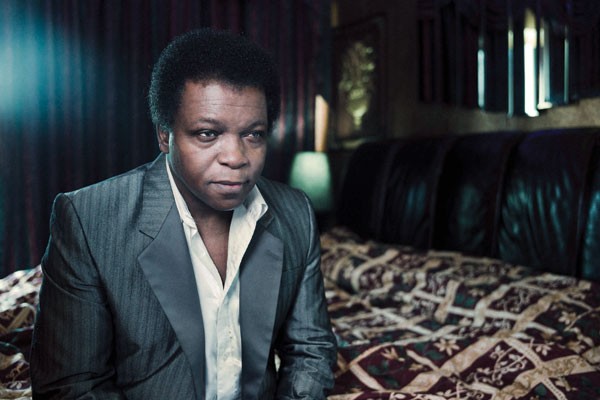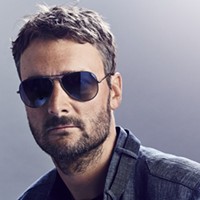Lee Fields shares musical wisdom in his second act
At 62, N.C.-born singer is part of a growing soul revival in Brooklyn
By John Schacht"It's like we're chasing after an unseen substance," singer Lee Fields says, beginning an impromptu sermon on soul music's temporal and spiritual blend. "You can't feel it, you can't touch it and you can't see it. You know it's there when you are aware of it from the inside, from your psyche. You can't physically feel it, but you have to feel it from within.
"It's all about the spirit, it's all about singing from the spiritual self, although it has nothing to do with religion," he goes on. "It's like a GPS for the soul, man. Everybody is comprised of a corporeal self and a spiritual self — what we do is we let the spirit dictate if it feels good. Ah, man. All the way up until the last song, it has to feel good within."
As far as defining soul music, we can pull up to the curb right here; you're unlikely to improve on that description and I know I won't. But Fields, who at 62 is enjoying a second act when most musicians his age have packed it in or drifted into obscurity, has an even better story about how he got to such a place of musical wisdom. He's also enjoying the fruits of an old-school soul revival that's rejuvenating singers whose careers began at the tail end of soul's heyday — the '60s and early '70s — and were thereafter eclipsed by hip-hop's enormous shadow.
This current soul revival's central loci are the Brooklyn, N.Y., throwback record labels Daptone and Soul Fire (now Truth & Soul), both of which emerged from the pioneering mid-'90s funk-revival predecessor, Desco. Those indies — and a group of young, mostly white backing musicians who now orbit the labels as the Budos Band, Antibalas and Menahan Street Band — have delivered other second-act comebacks, including those from soul singers Charles Bradley and Sharon Jones.
The same building blocks have brought Fields to the attention of young, hip audiences that are discovering soul's deep grooves and rich heritage, and oldsters who miss the music's golden era. But this isn't really a comeback for Fields. Unlike Jones and Bradley, who were out of the game and making a living in other careers, Fields has been working the circuit almost constantly since he first played the juke joints of late-'60s Wilson, N.C., and the fertile, early-'70s Brooklyn soul club scene.
It's only now, however, that audiences have caught up with Fields. By phone from Helsinki, where's he and his band the Expressions are touring behind their marvelous new record, Faithful Man, Fields reports that the Finnish venue they're playing this night — the 700-seat Tavastia — is sold out. Actually, the previous 19 dates on this 24-date European tour have all sold out.
That's a long way from the days when Fields and the Soul Providers (an earlier version of the Expressions) toured much smaller — and more sparsely attended — European rooms. And on the band's Southern leg of the Fields/Expressions tour, which stops at Tremont Music Hall on Dec. 7, the rooms are bigger than the ones Fields has played over the past four decades.
"I'm having so much fun — I mean, I'm having a great time," Fields laughs. "I can't even explain it, it's like living a dream. I'm 62, and to see teenage girls out there screaming for a 62-year-old guy? That ain't bad, man! I'm a lucky guy. But you know what? I keep it all in the proper perspective, because I know what time it is. I appreciate people having a good time, but I leave it at that. I'm just thankful to God for allowing me to have this beautiful ride."
That beautiful ride began when, after a 1967 singing date outside Wilson in a backwoods juke joint, a stranger handed the 16-year-old Fields a business card and told him to look him up if he was ever in New York. Fields took the stranger at his word and followed as soon as he could, arriving in Brooklyn with $2. In short order, he married his current wife, Christie, released his first single in 1969, and through the '70s recorded a series of hard-funk records that have since become treasured finds for soul collectors.
Among those funk fans and collectors were Philip Lehman and Gabriel Roth. When the pair started Desco in 1996, Fields was one of the first singers they sought out. (Roth and Lehman discovered Jones, arguably the current movement's most recognizable name, while she was singing backup during 1996 recording sessions for Fields.) For his part, Fields had earned kudos for his James Brown-flavored funk in the '70s and even fronted Kool & the Gang for a while. He'd weathered disco and soul music's low point — the '80s — though he'd had to turn to real estate briefly to make ends meet. But toward that decade's end, Northern Soul crate-diggers and hip-hop samplers began scouring bins for deep-catalog soul and funk, and rediscovered the man who'd been dubbed "Little J.B."
Fields returned to the road as a soul-blues crooner and played — often to mostly female audiences — the Chitlin' Circuit throughout the South. That's when Desco stepped in and provided Fields with a new audience. Leon Michels, who's in the Expressions (though not on this tour), first played with Fields as a 16-year-old saxophonist with the Soul Providers, the Desco house band. For him, watching Fields every night was like watching James Brown, Wilson Pickett or Otis Redding deliver the goods.
"It's crazy how much he gives every single night," says Michels, now 32. "It sounds like a cliché, but sometimes I get worried for him. If we're doing like 18 straight dates, he just goes for it every single night to the point where you're watching on stage and you can see his fucking vocal chords shredding. But they don't. He's just got a gift."
Desco originally slotted Fields as a funk revivalist — you can hear it in the backbeat grit of his 1999 album Let's Get a Groove On — but the singer's profile has grown the further he's gotten from his "Little J.B" moniker. On My World, in 2009, Fields turned to richer arrangements and more sophisticated subject matter. That transition is even more noticeable on Faithful Man, where Fields sounds like a Motown/Stax/Philly Soul hybrid, wringing every ounce of emotion from sweat-soaked, horns-spackled and strings- accented fare.
"Every night when I come off the stage, I'm soaking wet. My clothes, I could wring water out of 'em," Fields says. "But for every ounce of sweat, it's worth it because this is what I worked my whole life for."
And that's really what separates this openly nostalgic movement from all the other current sonic antiquing — when you're talking about authenticity and the real deal, well, that's exactly what Fields is, and has been, for more than four decades: an actual '60s and '70s (and '90s and '00s) vintage soul singer.
Speaking of...
-
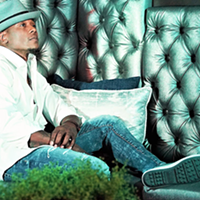
Calvin Richardson Comes Home
Oct 3, 2018 -
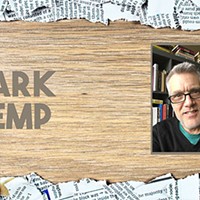
How to Keep Sane in an Insane World
Mar 8, 2017 - More »
Latest in Music Features
More by John Schacht
-
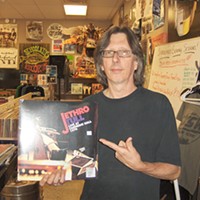
Two Ex-'CL' Music Editors Put the Charlotte Scene Into Perspective
Apr 26, 2017 -

CD Review: Floating Action's Body Questions
Nov 12, 2014 -

CD review: Buellton's Silent Partner
Oct 1, 2014 - More »
Calendar
-
SAINT MOTEL - The Awards Show @ N.C. Music Factory
-
Wage War & Nothing More @ N.C. Music Factory
-
Taylor Acorn @ Amos' Southend
-

Famed Blues-Rocker Coco Montoya Celebrates New Album at the Neighborhood Theatre! @ Neighborhood Theatre
-
The Price Club Tour: Connor Price @ The Underground
-
Angela Saylor Brings Her Electronic Music Project 'Minthill' Back Home
The Art of Memory
-
Evanescence, Lindsey Stirling bring new energy to PNC Music Pavilion
Band backed by orchestra bring renewed life to their songs.
-
Take a trip to Margaritaville - Jimmy Buffett giveaway 35
Win two tickets to his Charlotte concert on April 21.

